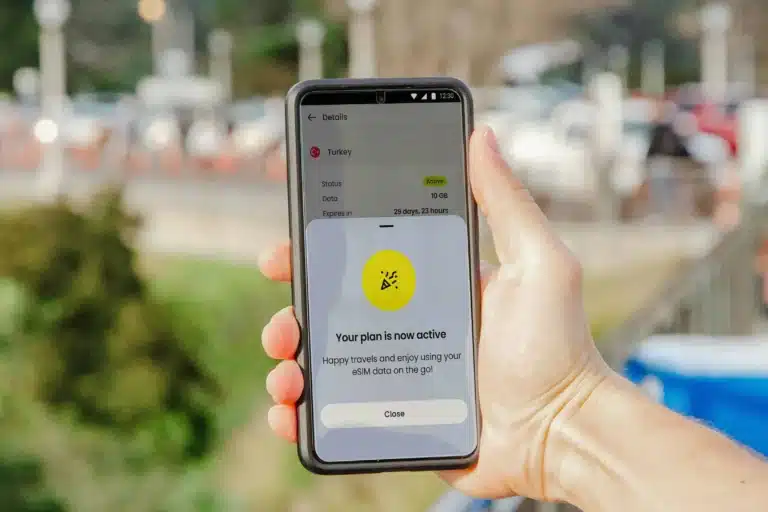Hey there, fellow traveler! As you gear up for your adventure in the Land of the Rising Sun, one essential aspect to consider is how you’ll handle your money. Understanding the ins and outs of exchanging money before going to Japan can make a big difference in how smoothly your trip goes.
From knowing when and where to exchange your currency to tips on saving a few Yen along the way, this guide is designed to help you navigate the world of Japanese currency like a pro.
So, let’s make sure your Yen goes the distance!
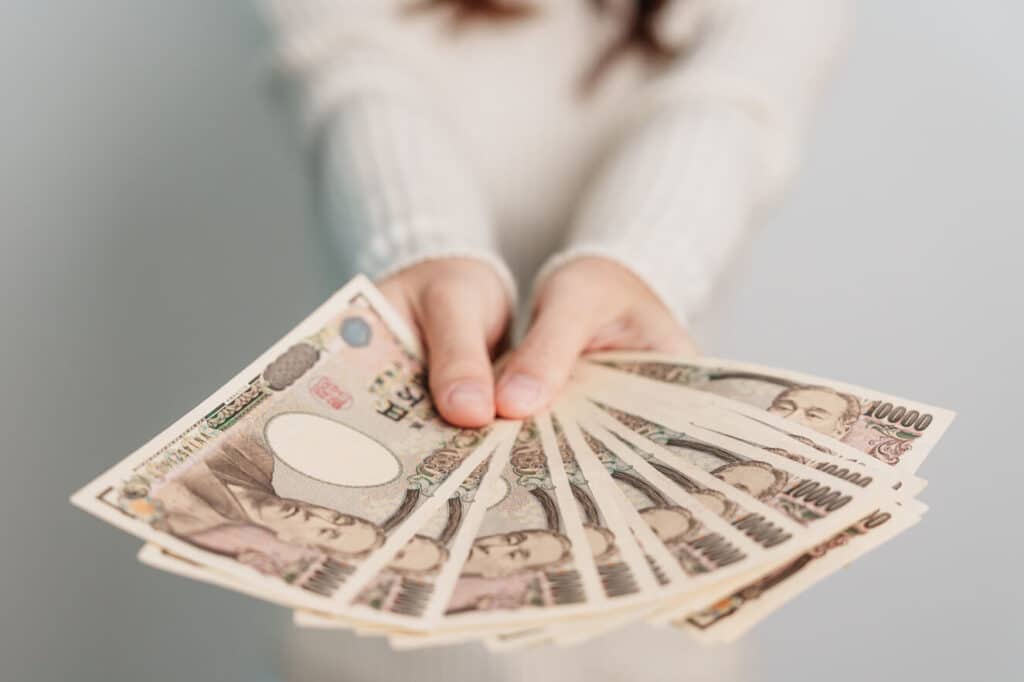
What Is Japanese Yen?
Japanese Yen, denoted by the symbol ¥ and the currency code JPY, is the official currency of Japan.
It’s used not only in Japan but also in some other territories and regions, making it crucial for travelers to understand its value and usage.
Yen is issued in various denominations, including coins (¥1, ¥5, ¥10, ¥50, ¥100, ¥500) and banknotes (¥1000, ¥5000, ¥10,000).

Should You Exchange Money Before Going To Japan?
Deciding whether to exchange money before your trip to Japan or upon arrival involves weighing several factors that can affect convenience, cost, and peace of mind.
Let’s look at the pros and cons:
Pros:
- Peace of Mind: Having yen in hand before you depart can provide peace of mind, knowing you have immediate access to local currency upon arrival.
- Avoiding Currency Exchange Hassles: By exchanging money beforehand, you can avoid potentially long lines at airport exchange counters or ATM issues upon arrival.
- Fixed Exchange Rate: You lock in a known exchange rate before departure, which can be beneficial if you’re concerned about currency fluctuations.
- Accessibility: Depending on your location, accessing local currency exchange services may be easier and more convenient before departure.
Cons:
- Exchange Rates May Not Be Favorable: Exchange rates offered in your home country might not be as competitive as those available in Japan, where you may find better rates through local banks, exchange offices, or ATMs.
- Security Risks: Carrying a large amount of cash can pose security risks, especially in transit or during your stay. Consider using secure methods to carry or store your money.
- Unused Yen: There’s a risk of overestimating your cash needs, leading to leftover yen that you may need to re-convert back to your home currency, potentially incurring additional fees.
- Limited Options: Depending on your location, you may have limited options for exchanging yen before departure, which could affect the convenience and cost-effectiveness of your exchange.
Other things to consider:
- Travel Plans: Consider your itinerary and planned activities. For instance, if you’re arriving late at night or in a remote area where currency exchange options may be limited, having yen in advance could be beneficial.
- Budgeting: Evaluate your spending habits and anticipated expenses in Japan to determine how much yen you’ll need. This can help you decide whether exchanging money before departure aligns with your budgeting goals.
- Emergency Funds: Regardless of where you exchange money, it’s advisable to carry a mix of cash and internationally accepted cards for flexibility and security.
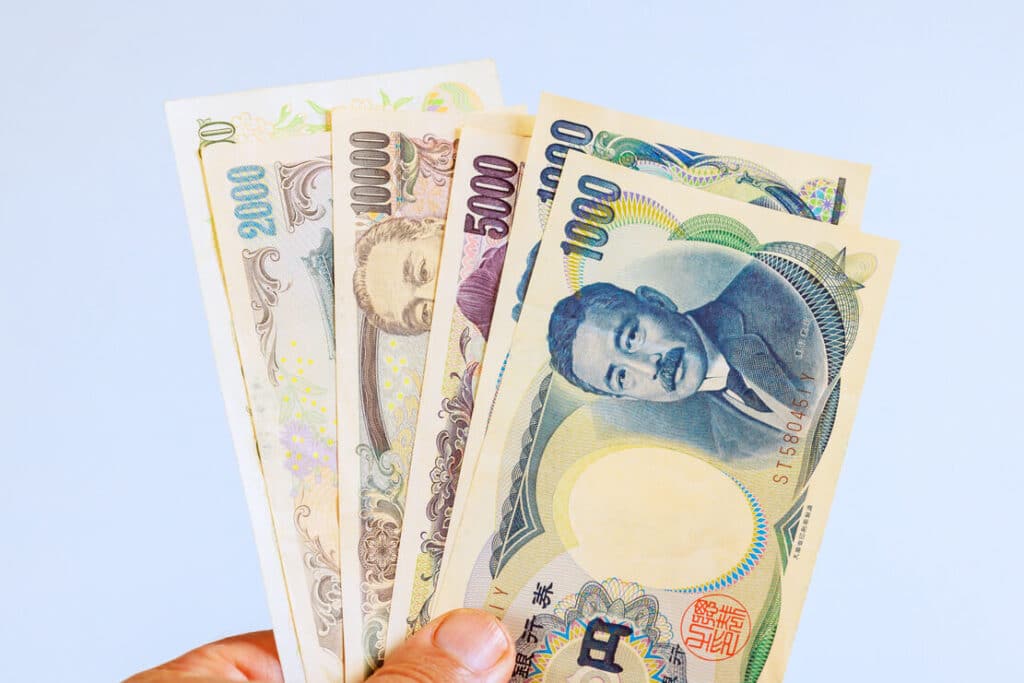
Exchanging Money Before Going To Japan
There are a couple of ways for you exchange money before heading to Japan.
Here’s what you need to know:
- Currency Exchange Services At Airports
Many international airports offer currency exchange counters where you can exchange your home currency for Japanese Yen (JPY). These counters are convenient but may have varying exchange rates and fees.
- Banks & Financial Institutions
Visit your local bank or financial institution to exchange currency before your trip. Banks often provide competitive exchange rates and may offer the convenience of ordering yen in advance.
- Online Currency Exchange Services
Utilize online platforms and services that allow you to order foreign currency for delivery or pickup at designated locations. These services may offer competitive rates and the convenience of home delivery.
- Currency Exchange Offices
Independent currency exchange offices or kiosks in shopping malls or tourist areas may also offer competitive rates. It’s advisable to compare rates and fees across different providers.
- Prepaid Travel Money Cards
Consider loading a prepaid travel money card with yen before your departure. These cards can be used like debit or credit cards in Japan, offering security and convenience.
- Travel Agencies
Some travel agencies offer currency exchange services as part of their travel packages or independently. Check if your travel agency provides favorable rates for exchanging yen before your trip.
Exchanging Money After Landing In Japan
If you decide to exchange your money after landing in Japan, there are a few ways you can do that. Here’s what you need to know:
- Currency Exchange Counters at Airports
Japanese airports, including Narita and Haneda in Tokyo, have currency exchange counters operated by banks and exchange service providers. These counters often offer competitive rates and are convenient upon arrival.
- Banks & Post Offices
Major banks and post offices in Japan provide currency exchange services for foreign visitors. Banks like Japan Post Bank, MUFG Bank, and others have branches in major cities and tourist areas where you can exchange currency.
- ATMs
International ATMs are widely available in Japan, especially in airports, convenience stores, and bank branches. Look for ATMs that accept international cards (look for symbols like Visa, MasterCard, Maestro, or Plus/Cirrus).
- Hotels / Accommodations
Some hotels and larger accommodations offer currency exchange services for their guests. While convenient, these services may have slightly higher fees or less competitive rates compared to banks or ATMs.
- Convenience Stores & Shopping Malls
Certain convenience store chains like 7-Eleven, FamilyMart, and Lawson have ATMs that accept international cards. These locations often provide 24-hour access to cash withdrawal and may offer competitive exchange rates.
- Credit & Debit Cards
Major credit cards such as Visa, MasterCard, and American Express are widely accepted in Japan, especially at hotels, large retailers, and restaurants. Using your card for purchases can reduce the need for large cash exchanges.
Saving Money When Exchanging Currency
Navigating currency exchange can be a savvy way to stretch your travel budget. Here are some tips to help you save money:
- Compare Exchange Rates: Before exchanging currency, compare rates from different providers such as banks, currency exchange offices, and online platforms. Even small rate differences can add up to significant savings.
- Timing Matters: Monitor exchange rate trends and consider exchanging money when rates are favorable. Avoid last-minute exchanges at airports or tourist areas, where rates may be less competitive.
- Avoid Airport Exchange Counters: While convenient, airport exchange counters often charge higher fees and offer less favorable rates. Exchange only what you need for immediate expenses and seek better rates elsewhere.
- Use ATMs Wisely: ATM withdrawals in Japan can be cost-effective if you use ATMs that accept international cards. Look for ATMs at major banks or convenience stores like 7-Eleven, which often offer competitive rates and lower fees.
- Minimize Fees: Be aware of transaction fees, commissions, and hidden charges when exchanging money. Some providers may advertise low rates but compensate with high fees. Compare total costs, including fees, to get the best deal.
- Consider Prepaid Travel Cards: Prepaid travel money cards can offer competitive exchange rates and security benefits. Load the card with yen before your trip to lock in rates and avoid currency fluctuation risks.
- Optimize Card Usage: When using credit or debit cards in Japan, choose cards with low or no foreign transaction fees. Notify your bank of your travel plans to avoid card blocks and ensure smooth transactions.
- Plan Your Cash Needs: Estimate your daily expenses in yen and exchange accordingly. Avoid over-exchanging to minimize the risk of leftover currency that needs re-conversion, which can incur additional fees.
- Avoid Dynamic Currency Conversion (DCC): When paying by card, decline DCC to avoid inflated exchange rates set by merchants. Opt to be charged in local currency (yen) for better control over exchange rates.
- Stay Informed: Stay updated on currency exchange trends and local regulations in Japan. Online resources and travel forums can provide insights and tips from other travelers.
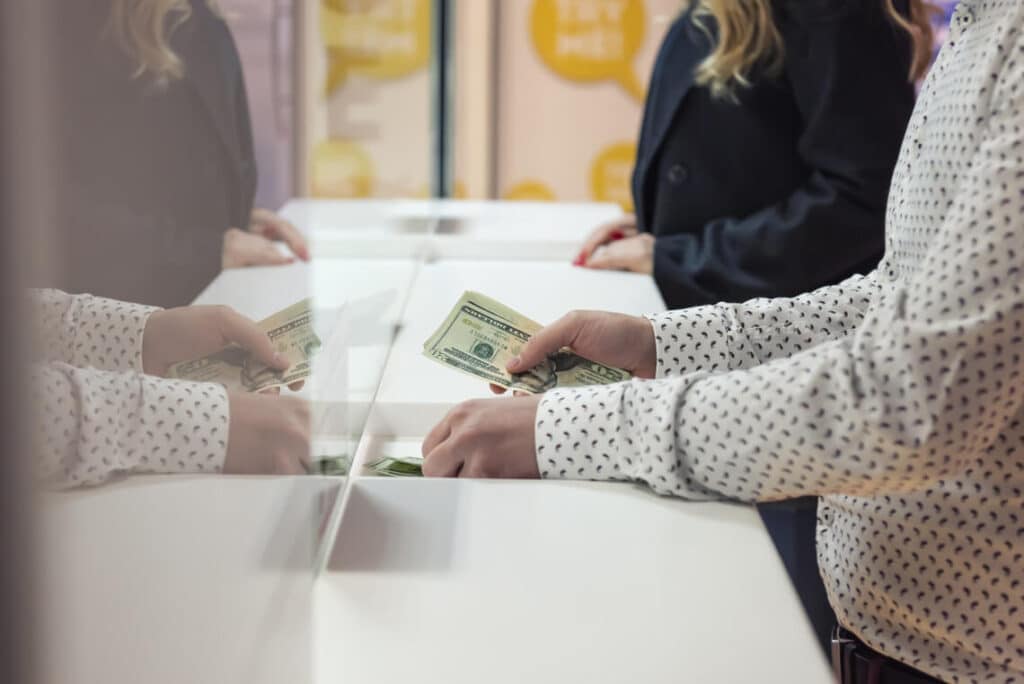
Should I Carry Cash?
Deciding whether to carry cash during your travels in Japan depends on various factors that can impact convenience, safety, and financial flexibility. Let’s look at the pros and cons.
Pros:
- Widely Accepted: Cash is widely accepted for transactions in Japan, especially in smaller shops, local markets, and certain restaurants.
- Convenience: Using cash can be more convenient for small purchases, vending machines, and places where card payments may not be accepted or feasible.
- Budgeting Control: Carrying cash allows you to set a daily spending limit and manage your budget more effectively without relying solely on cards.
Cons:
- Security Risks: Carrying large amounts of cash poses security risks, especially in crowded or touristy areas. Consider using a money belt or hotel safe to minimize risks.
- Exchange Rate Fluctuations: If you exchange too much cash in advance, you may lose money if the exchange rate changes unfavorably during your trip.
- Limited Reimbursement: Unlike credit or debit cards, cash lost or stolen may not be recoverable, making it essential to exercise caution and minimize exposure.
How Much Cash Should I Carry?
If you do decide to carry cash with you, you should make sure it goes the distance. Here’s what you can do to make sure you have enough cash – without having too much.
- Daily Expenses: Estimate your daily expenses for essentials such as meals, local transportation (like buses and trains), admission fees to attractions, and small purchases like snacks or souvenirs.
- Emergency Funds: Allocate additional cash for emergencies, unexpected expenses, or situations where cards may not be accepted or accessible (e.g., rural areas, smaller establishments).
- Card Acceptance: While major credit and debit cards are widely accepted in Japan, particularly in urban areas and tourist hotspots, carrying cash ensures you’re prepared in locations where card usage may be limited.
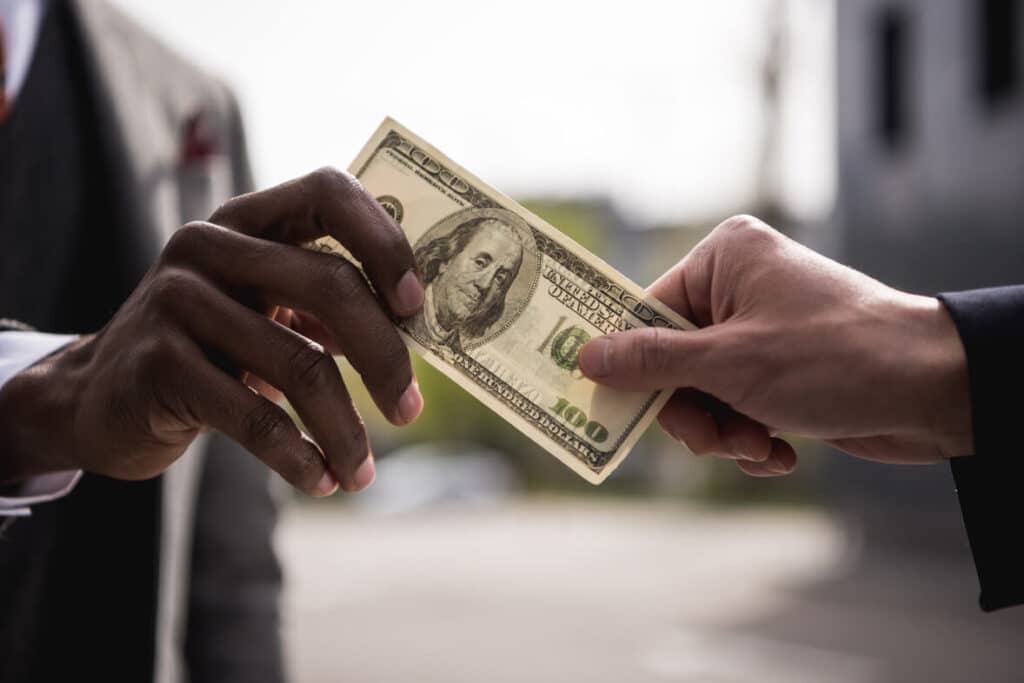
Conclusion & Extra Tips
With everything above, you’re ready to set off! But we have one more helpful section. It’s important to know that Japan is a country steeped in culture, with a big focus on etiquette. Here are some tips to make sure your payments go down smoothly!
- Use Both Hands: When giving or receiving money, especially in formal or traditional settings like shops or restaurants, use both hands to offer bills or receive change. This gesture shows respect and courtesy.
- Avoid Using Large Bills for Small Purchases: In everyday transactions, especially at smaller shops or markets, try to use smaller denominations (like ¥1000 or ¥500) for purchases to facilitate smooth transactions.
- Prepare Exact Change: When possible, prepare exact change for purchases to minimize inconvenience for the cashier and other customers. This is particularly appreciated in busy places.
- Respectful Counting: If you need to count money in public, do so discreetly and quietly to avoid drawing unnecessary attention. Counting money loudly can be considered rude or disrespectful.
- Receipts: When making purchases, especially larger ones, politely ask for a receipt (or ‘ryōshūsho’ in Japanese). Receipts are commonly provided and may be necessary for returns or expense tracking.
- Currency Etiquette: Handle yen notes and coins carefully and respectfully. Avoid crumpling, writing on, or damaging currency, as it’s considered disrespectful.
- Tip Considerations: Tipping is not customary in Japan and may even be considered rude. Most services, including restaurants and taxis, include all fees and gratuities in the displayed price.
- Using Cards: When paying with a card, wait for the cashier to indicate when to insert or swipe your card. Be patient and follow their instructions to ensure a smooth transaction.
- Security Measures: Use secure methods to carry and store cash, such as a money belt or a secure compartment in your bag. Keep larger amounts of cash in a hotel safe if available.
- Language: Learn a few basic Japanese phrases related to money and transactions, such as ‘Ikura desu ka?’ (How much is it?) and ‘Arigatou gozaimasu’ (Thank you very much), to facilitate communication and show respect.
- Use Air Doctor: It takes just a few seconds to download the Air Doctor app and it might just save your trip! Now, you can easily and quickly find a doctor anywhere you travel. With Air Doctor in your pocket, you have instant access to a global medical network of over 20,000 local, multi-lingual doctors and specialists. Active in 78 countries, our trusted medical network provides local valid prescriptions, and offers 24/7 multi-lingual support. Book a video consultation, clinic, or an at-home (hotel) appointment, in just a few taps. Plus, we’re partnered with insurers worldwide so you can enjoy a cashless (no out-of-pocket expenses), claimless (no lengthy claims processes), and fully digital user experience.

Happy travels!






